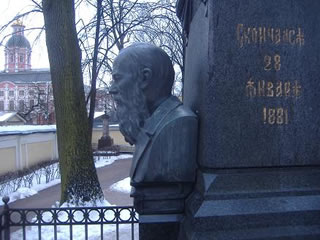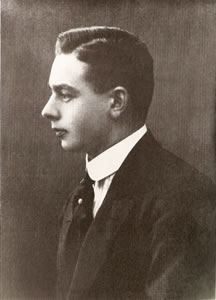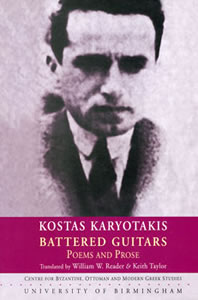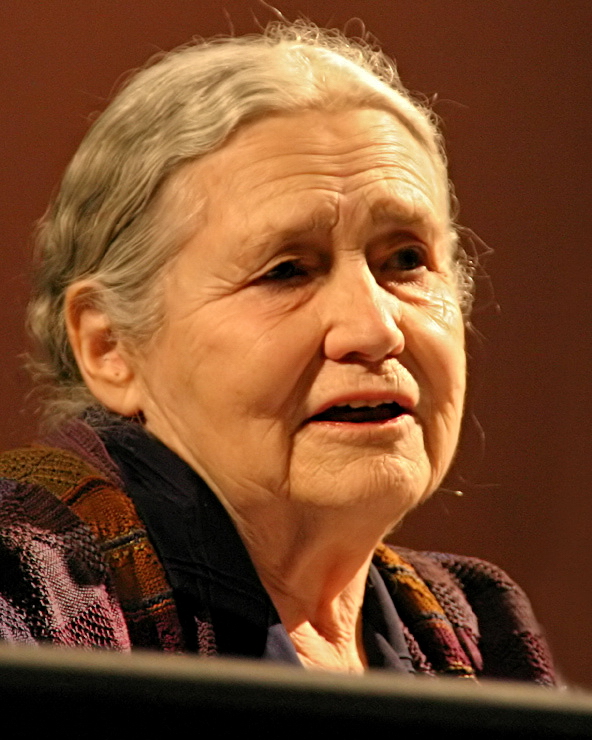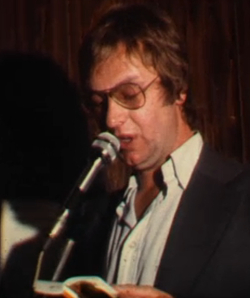De Canadese schrijver Joseph Boyden werd geboren op 31 oktober 1966 in Willowdale, Ontario. Zie ook mijn blog van 31 oktober 2008.
Uit: Through Black Spruce
“When there was no Pepsi left for my rye whisky, nieces, there was always ginger ale. No ginger ale? Then I had river water. River water’s light like something between those two. And brown Moose River water’s cold. Cold like living between two colours. Like living in this town.When the whisky was Crown Royal, then brown Moose River water was a fine, fine mix.
You know I was a bush pilot. The best. But the best have to crash. And I’ve crashed a plane, me. Three times. I need to explain this all to you. I was a young man when I crashed the first time.The world was wide open. I was scared of nothing. Just before Helen and I had our oldest boy. The first time I crashed I was drunk, but that wasn’t the reason I crashed. I used to fly a bush plane better with a few drinks in me. I actually believe my eyesight improved with whisky goggles on. But sight had nothing to do with my first crash.Wait. It had everything to do with it. Snowstorm. Zero visibility. As snow blinded my takeoff from the slick runway, I got the goahead with a warning from the Moosonee flight tower: harder snow coming.
An hour later and I’d made it a hundred miles north of Moose River on my way to pick up trappers not wanting but needing to come in from their lines.A rush to find them with night coming. I had a feeling where they’d be.Me, I was a natural in a plane. But in snow? One minute I’m humming along, the next, my fuel line’s gummed and I’m skidding and banging against a frozen creek.The crazy thing? Had I come in a few feet to the left or right, blind like I did, I would have wrapped my plane around black spruce lining the banks. Head a mush on the steering. Broken legs burning on a red-hot motor.The grandparents sometimes watch out. Chi meegwetch, omoshomimawak!
My plane wasn’t too damaged, but this was a crash nonetheless. And I emerged from the first true brush with it. The long darkness. No need to speak its name out loud.
Soon as I forced the door open, the snow, it stopped falling. Like that. Like in a movie. And when the cloud cover left on a winter afternoon a hundred plus miles north of Moosonee in January, the cold came, presented itself in such a forceful way that I had two choices.
The first was to assume that the cold was a living thing that chased me and wanted to suck the life from me. I could get angry at it, desperate for some sense of fairness in the world, and then begin to panic.“

Joseph Boyden (Willowdale, 31 oktober 1966)
De Amerikaanse dichter, schrijver en literatuurcriticus Bruce Bawer werd geboren op 31 oktober 1956 in New York. Zie ook mijn blog van 31 oktober 2008.
Uit: Surrender
“We in the West are living in the midst of a jihad, and most of us don’t even realize it — because it’s a brand of jihad that’s barely a generation old.
Islam divides the world into two parts. The part governed by sharia, or Islamic law, is called the Dar al-Islam, or House of Submission. Everything else is the Dar al-Harb, or House of War. It’s called the House of War because it, too, according to the Koran, is destined to be governed by sharia, and it will take war — holy war, jihad — to bring it into the House of Submission.
Jihad began with Muhammed himself. When he was born, the lands that today make up the Arab world were populated mostly by Christians and Jews; within a century after his death, those areas’ inhabitants had been killed, driven away, subjugated to Islam as members of the underclass known as dhimmis, or converted to the Religion of Peace at the point of a sword. The Crusades of the twelfth and thirteenth centuries were not wars of conquest by Europeans but attempts to take back what had once been Christian territory. America’s very first foreign conflict after the Revolutionary War was with the Barbary pirates, who, sponsored by the Muslim governments of North Africa — just as terrorist groups today enjoy the sponsorship of countries like Libya, Iran, and Syria — had for generations been preying on European ships and selling their crews and passengers into slavery. (Between the sixteenth and nineteenth centuries, over one million Europeans — including people like Cervantes, Saint Vincent de Paul, and French playwright Jean Francois Regnard — became chattel in North Africa, a minor detail that rarely makes it into Western history textbooks, perhaps because it would compel textbook writers to accord jihad a major role in their narratives of Western history.)
In 1786, John Adams and Thomas Jefferson, then the U.S. ambassadors to Britain and France respectively, met in London with the Tripolitanian envoy to Britain and asked him why his pirates were preying on American ships; he explained, as Adams and Jefferson reported afterward to the Continental Congress, that the pirates’ actions were “founded on the Laws of their Prophet, that it was written in their Koran, that all nations who should not have acknowledged their authority were sinners, that it was their right and duty to make war upon them wherever they could be found, and to make slaves of all they could take as Prisoners, and that every Musselman who should be slain in Battle was sure to go to Paradise.”

Bruce Bawer (New York, 31 oktober 1956)
De Engelse dichter John Keats werd geboren op 31 oktober 1795 in Finsbury Pavement in London. Zie ook mijn blog van 31 oktober 2006 en ook mijn blog van 31 oktober 2007 en ook mijn blog van 31 oktober 2008.
A Thing of Beauty (Endymion)
A thing of beauty is a joy for ever:
Its lovliness increases; it will never
Pass into nothingness; but still will keep
A bower quiet for us, and a sleep
Full of sweet dreams, and health, and quiet breathing.
Therefore, on every morrow, are we wreathing
A flowery band to bind us to the earth,
Spite of despondence, of the inhuman dearth
Of noble natures, of the gloomy days,
Of all the unhealthy and o’er-darkn’d ways
Made for our searching: yes, in spite of all,
Some shape of beauty moves away the pall
From our dark spirits. Such the sun, the moon,
Trees old and young, sprouting a shady boon
For simple sheep; and such are daffodils
With the green world they live in; and clear rills
That for themselves a cooling covert make
‘Gainst the hot season; the mid-forest brake,
Rich with a sprinkling of fair musk-rose blooms:
And such too is the grandeur of the dooms
We have imagined for the mighty dead;
An endless fountain of immortal drink,
Pouring unto us from the heaven’s brink.
O Blush Not So!
O BLUSH not so! O blush not so!
Or I shall think you knowing;
And if you smile the blushing while,
Then maidenheads are going.
There’s a blush for want, and a blush for shan’t,
And a blush for having done it;
There’s a blush for thought, and a blush for nought,
And a blush for just begun it.
O sigh not so! O sigh not so!
For it sounds of Eve’s sweet pippin;
By these loosen’d lips you have tasted the pips
And fought in an amorous nipping.
Will you play once more at nice-cut-core,
For it only will last our youth out,
And we have the prime of the kissing time,
We have not one sweet tooth out.
There’s a sigh for aye, and a sigh for nay,
And a sigh for “I can’t bear it!”
O what can be done, shall we stay or run?
O cut the sweet apple and share it!
Last Sonnet
BRIGHT Star, would I were steadfast as thou art–
Not in lone splendour hung aloft the night,
And watching, with eternal lids apart,
Like Nature’s patient sleepless Eremite,
The moving waters at their priest-like task
Of pure ablution round earth’s human shores,
Or gazing on the new soft-fallen mask
Of snow upon the mountains and the moors–
No–yet still steadfast, still unchangeable,
Pillow’d upon my fair love’s ripening breast,
To feel for ever its soft fall and swell,
Awake for ever in a sweet unrest,
Still, still to hear her tender-taken breath,
And so live ever–or else swoon to death.

John Keats (31 oktober 1795 – 23 februari 1821)
Standbeeld door Stuart Williamson, 2007
De Engelse schrijver Nick Stone werd geboren op 31 oktober 1966 in Cambridge. De eerste vier jaar van zijn leven bracht hij door op Haïti, waar de familie van zijn moeder vandaan kwam. In 1971 keerde hij terug naar Engeland. In zijn jonge jaren was Stone een succesvol sporter – hij bokste in de nationale amateur klasse. Verder trad hij in de voetsporen van zijn vader en studeerde geschiedenis. Daarna werkte hij als headhunter voor verschillende bedrijven. Hij debuteerde in 2006 met Mr Clarinet. Voor de plot van het boek had hij inspiratie opgedaan toen hij in 1996 nog eens terug ging naar Haïti.
Uit: King of Swords
„It was the last thing he needed or wanted, a dead ape at the end of his shift, but there it was—a corpse with bad timing. Larry Gibson, one of the night security guards at Primate Park, stood staring at the thing spotlighted in his torch beam—a long-stemmed cruciform of black fur lying less than twenty feet away, face up and palms open on the grassy verge in front of the wire. He didn’t know which of the fifteen species of monkey advertised in the zoo’s product literature this one was, and he didn’t care; all he knew was that he had some decisions to make and fast. He weighed up what to do with how much he could get away with not doing: he could sound the alarm and stick around to help when and where and if he was needed; or he could simply look the other way and ignore King Kong for the ten remaining minutes of his shift. Plus he craved sleep. Thanks to some Marine-issue bennies he’d popped on Sunday night, he’d been awake for fifty-nine hours straight; his longest ever stretch. The most he’d lasted before was forty-eight hours. It was now Wednesday morning. He’d run out of pills and all the sleep he’d cheated and skipped out on was catching up with him, ganging up in the wings, getting ready to drop on him like a sack of wet cement.
He checked his watch. 5.21 A.M. He needed to get out of here, get home, get his head down, sleep. He had another job starting at one p.m. as a supermarket supervisor. That was for alimony and child support. This gig—cash in hand and no questions asked—was for body and soul and the roof over his head. He really couldn’t afford to fuck it up.
Dr Jenny Gold had been dozing with the radio on when she got the phone call from the security guard in Sector i, nearest the front gate. Something about a dead gorilla, he’d said. She hoped to God it wasn’t Bruce, their star attraction.“
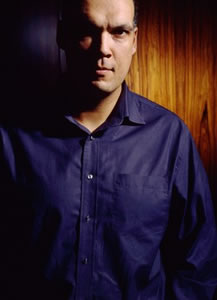
Nick Stone (Cambridge, 31. Oktober 1966)
De Russische schrijfster Irina Denezhkina werd geboren op 31 oktober 1981 in Yekaterinburg. Zie ook mijn blog van 31 oktober 2008.
Uit: Give Me: Songs for Lovers
“We’re standing there drop-dead gorgeous in the metro. I’ve got on this skintight T-shirt and shorts that end before they’ve hardly begun. Volkova’s in a long sky-blue dress that shows everybody her boobs and her backside, everything big and bouncy. Her light brown hair’s all carefully styled and lacquered — “Not like you: Rake it across the bald patch and off you go.” A big nose. It doesn’t spoil her though. It gives her individuality. All the men starehard when she walks past. And when we’re together, it’s like the end of the world.
There we are standing opposite the escalator, with people riding up and out in our direction. All sorts.
“Look at that one; what an ugly kisser!”
“He’s looking in our direction! Yuh-uck!”
“Anyone but that one, anyone but that one!”
“Oh, sugar…no, don’t come this way!”
“No, not that freak, please!”
So we’re standing there whispering, and in the end we wound ourselves up so much we almost legged it top-speed out of the metro. But for some reason we hung on. Then suddenly I see two boys coming toward us. The one who’s not so tasty is like a Soviet soft toy dog. The other’s Pepsi, pager, MTV, spiky hair, fruit-drop lips, really cocky look. Gorgeous like a picture in a magazine.
“Which of you is my husband?” I asked in a voice hoarse with excitement, while Volkova digested the information. “No need to run; the beauty contest’s come to you.”
“Me,” the gorgeous one answered modestly. “I’m Lyapa. And this is Kres.”
Kres shook his long hair and smiled in a village-yokelish kind of way. Round-faced and round-bellied. Lyapa beamed.
And now here I am sitting in his kitchen, and he’s smoking and not showing the slightest sign of interest. He’s two years younger than me.
I downed my coffee decisively, burnt my tongue, got up and made for the door.
“Where are you going?” Lyapa said, rousing himself.
“Home!”
“It’s nighttime. You can’t go out there.”
“So what do I do?”
Lyapa started thinking. Maybe he’d overdone it back then on the Net, when he showered me with messages: “My pussycat! I love you very, very much!” Maybe he shouldn’t have. It’s two months now since that meeting in the metro. We see each other once a week. I’ve been with Volkova to watch his band rehearse a couple of times. I remember the guitarist Vitya sang a line instead of Kres, and Kres was really upset and took offense, because he’s the vocalist, not Vitya. He was humiliated in front of Volkova and me. He was left with nothing to do. As if heweren’t the vocalist at all, just some piece of gear that could easily be replaced. Take Lyapa: I don’t think you could replace him; no one else plays the drums like that. But Kres…Like, who cares?”

Irina Denezhkina (Yekaterinburg, 31 oktober 1981)
De Duitse schrijver Ernst Augustin werd geboren op 31 oktober 1927 in Hirschberg. Zie ook mijn blog van 31 oktober 2008.
Uit: Raumlicht: Der Fall Evelyne B.
“Es gehört zu meinem Plan, daß ich nicht auffalle, oder doch kaum. Ich wohne in einem bürgerlichen
Stadtteil Münchens, wo die Leute auf der Straße zum nahe gelegenen Nymphenburger Kanal wandern,
Handwerksmeister, Beamte, wenig Ausländer. Und ich wohne in einer Straße mit kleinherrschaftlichen
Häusern, die auch heute noch so aussehen, von denen meines das schmalste ist, zwei Stockwerke, rechts und links von Viergeschossigen eingebaut. Ich habe einen wenig auffallenden, sechs Meter breiten und drei Meter tiefen Vorgarten mit einem Schneeballbaum.
Das Haus ist nett angemalt, weiß und dunkelrot, wobei die Breite der Vorderfront durch die Eingangstür sowie ein Zimmerfenster im Parterre ausgemacht wird. Im ersten Stock sind zwei Zimmerfenster zu sehen, dann noch knapp über dem Blumenbeet ein vergittertes Kellerfenster. Ich habe ein unauffälliges Emailleschild, dessen Größe sowieso von der Ärztekammer beschränkt ist, meines ist aber eher noch kleiner, und ich habe im Parterre weiße, im ersten Stock rotbraune Fenstervorhänge, die fast immer geschlossen sind, auch außerhalb meiner Sprechstunden,
um die Leute nicht auf Veränderungen aufmerksam zu machen. Das Parterrefenster ist ebenfalls vergittert, aber so, daß man von außen nichts bemerkt, weißlackierte in das Fenster eingelassene Stahlrahmen, welche direkt mit kleinen Scheiben verglast sind, dazu darf ich erklären, daß ich niemanden im Haus festhalten will, sondern umgekehrt – das mag man jetzt deuten, wie man will. Und hinter diesem Fenster schreibe ich die Bücher, die ursprünglich immer den einen Titel tragen sollten: die Entdeckung der Schizophrenie, während ich dann aber doch davon Abstand nehme, da ich die Reaktion der Fachwelt voraussehe, die dann schließlich ohnehin eintritt.
Welches voraussetzt, daß die Schizophrenie bis dahin noch nicht entdeckt ist.
Sie begreifen, heißt aber, den eigenen Körper nicht begreifen. Sich über die Unmöglichkeit (aber die totale Unmöglichkeit!) zu entsetzen, die im Wachstum auch nur eines Fingernagels liegt, falls dieses wirklich stattfinden sollte. Außerdem: Ich liebe und bewundere die Tiere, wie sie mit ihren kleinen Werkzeugen sich unter einem Stein einrichten, wie sie an einen schönen braunen Pelz glauben und ihn auch bekommen, und wie sie in ihrem Pelz unter dem Stein sitzen, in tiefer Selbstbesinnung selbst zum kleinen Gott werdend.“

Ernst Augustin (Hirschberg, 31 oktober 1927)
De Braziliaanse dichter Carlos Drummond de Andrade werd geboren op 31 oktober 1902 in Itabira, een klein dorpje in de staat Minas Gerais. Zie ook mijn blog van 31 oktober 2008.
Papier
En alles wat ik heb gedacht
en alles wat ik heb gezegd
en alles wat men mij verteld heeft
was papier
En alles wat ik heb ontdekt
bemind
gehaat
papier
Papier al wat er was in mij
en in de anderen, kranten-
papier
behangpapier
pakpapier
papierpapier
papier-maché.
Een vrouw die naakt loopt door het huis
Een vrouw die naakt loopt door het huis,
vervult ons van zo grote geestesrust.
Het is geen gedateerde, geile naaktheid.
Het is een gekleed in naaktheid gaan,
onschuld als van een zuster, een glas water.
Het lichaam wordt zelfs niet waargenomen
door het ritme dat het meevoert.
Welvingen gaan langs in staat van reinheid,
geven de naam kuisheid aan het leven.
Haren die bekoorden verontrusten niet.
Borsten, billen (stille wapenstilstand)
rusten uit van strijd. En ook ik rust.
Vertaald door August Willemsen
Your Shoulders Hold Up The World
A time comes when we no longer can say:
my God.
A time of total cleaning up.
A time when we no longer can say: my love.
Because love proved useless.
And the eyes don’t cry.
And the hands do only rough work.
And the heart is dry.
They knock at our door in vain, we won’t open.
We remain alone, the light turned off,
and our enormous eyes shine in the dark.
It is obvious we no longer know how to suffer.
And we want nothing from our friends.
Who cares if old ag
e comes, what is old age?
Our shoulders are holding up the world
and it’s lighter than a child’s hand.
Wars, famine, family fights inside buildings
prove only that life goes on
and not everybody has freed themselves yet.
Some (the delicate ones) judging the spectacle cruel
will prefer to die.
A time comes when death doesn’t help.
A time comes when life is an order.
Just life, without any escapes.
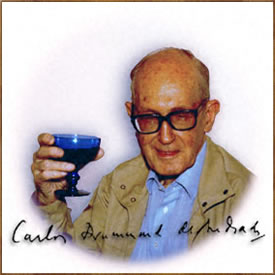
Carlos Drummond de Andrade (31 oktober 1902 – 17 augustus 1987)
De Oostenrijkse schrijver Jean Améry werd geboren op 31 oktober 1912 in Wenen. Zie ook mijn blog van 31 oktober 2006 en ook mijn blog van 31 oktober 2007 en ook mijn blog van 31 oktober 2008.
Uit: Die Schiffbrüchigen
“Das Nachthemd warf er ab und stand nun nackt im ebenerdigen Zimmer. Im Hof vor seinem Fenster sang mühselig und heiser ein Bettler. Den kalten Strahl des klaren Wassers goß Eugen über seinen Körper und mit den letzten Spuren des nächtlichen Schweißes, die die gläserne Klarheit des Wassers aus Achselhöhlen und Kniekehlen riß, versickerten die dunkel-feuchten Gewässer der nächtlichen Träume in seiner Seele. Die verstreuten Kleider sammelte er und zog sie an. Die tägliche Sorge: wie lange hält mein Anzug noch? düsterte in ihm auf. Hauchzarte Fäden hingen vom Kragen seines Hemdes und den Manchetten. Um wieviel einfacher wäre es doch gewesen, den Kragen daheim liegen zu lassen. Den Kragen – Sinnbild für Eugens bürgerliche Verkleidu
ng. Den Schritt erschlaffen zu lassen wäre besser gewesen, die Haare nicht mehr aus der Stirn zu streichen, wohlig das Grau des Schmutzes seine Kleider eindunkeln zu lassen und bis zum Morgen in den Schenken zu hocken.
(Die Tage waren schwer.) Nur noch die Nächte waren gut. Heut hatte Agathe bei ihm geschlafen und noch vor Morgengrauen war sie gegangen, ohne daß Eugen darum gewußt hatte. Wie gut das war: nicht allein in seinem Bett entschlafen zu müssen, Weichheit und Wärme an seinem Körper zu spüren, sich müde zu machen. Ach, in den Nächten, die Agathe mit ihm schlief, war allein vielleicht noch Ruhe und Gleichmaß, Andacht und Glaube. Da war noch ein: Das Leben ist gut, oder: das Leben ist warm, oder: dunkel. – Und das ist nicht zu sagen, was es in den Nächten ist, den Arm über Taille und Rücken einer Frau zu legen und in ihren Achselhöhlen eine Ahnung Schweißes zu spüren, sein Antlitz in fremdes Haar zu betten.
Doch am Tage verlor es seine Geltung. Was sein Eigen sein konnte zu jeder Stunde, Trost und Heimat, blieb ihm in der Helligkeit des Tages unerfühlbar ferne und wenn er daran dachte, kam oft ein schmerzhaftes Gefühl der Angst in ihm auf.
Zart wehten ein paar Sonnenstrahlen in den Lichthof. Klarer hoben die blassen Konturen der Möbel sich nun und der bleiche, kühle April erhellte kalt und ohne Trost Eugens Gefängnis.“

Jean Améry (31 oktober 1912– 17 oktober 1978)

